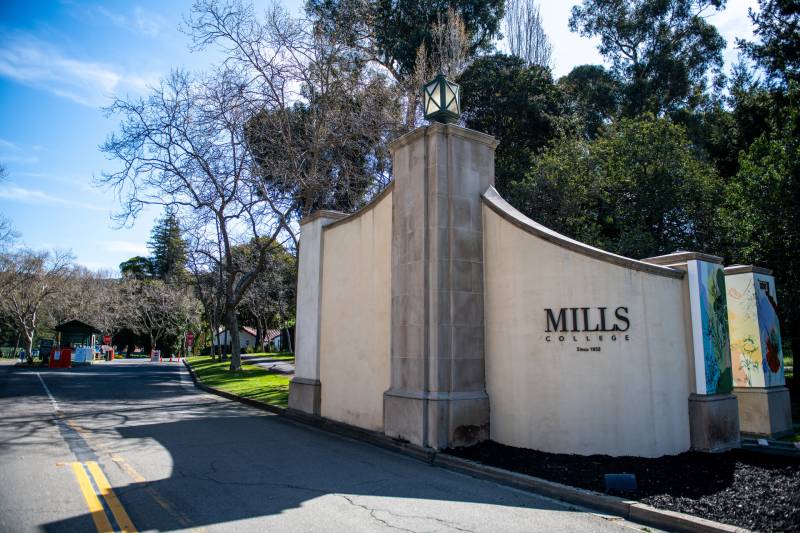So Franco-Clausen saved up money and worked out a schedule with her wife to care for their five kids. And when she applied for the school’s accelerated bachelor’s-to-master’s program in public policy, she got in.
Then halfway through her program, while she was sitting in class, Mills announced that it would stop granting degrees.
“It couldn’t have came at a worse time. [For] students like myself — who work, have families and [are] trying to reach our academic goals — to be hit with an interruption of our journey in our path at Mills … it’s blindsiding,” she said.
And those distractions didn’t just affect students.
“I don’t think anyone on the faculty or staff, aside from a few select higher-ups, knew anything about it coming down the pipeline,” said Roger Sparks, professor and chair of the economics department.
There was more confusion for students and faculty when it looked like another Bay Area giant might swoop in and provide some answers: UC Berkeley.
But that deal didn’t materialize.
‘It never got to that point’
Less than a week before Mills announced that it would be forced to close, officials at the Berkeley journalism school sent an email to faculty and lecturers. In it, Associate Dean Jeremy Rue had some exciting news: Berkeley was “exploring the purchase of Mills College campus in Oakland,” and that potential acquisition could present opportunities for the journalism school — including “an entire relocation of the school.”
There were plans to form a committee at the school to look into potential options and “explore its implications and desirability.”

But that committee was never formed. Interim Dean Geeta Anand told KQED that relocating to the school was “never seriously considered by me or any of our faculty. It just never got to that point.”
The rumored deal to purchase Mills also fell apart, though officials at both schools have declined to comment on why.
But according to Dr. Marilyn Schuster, an alumna of Mills and a member of the Board of Trustees who’s in favor of the deal with Northeastern, timeliness seems to have been a factor in the decision-making.
“Berkeley is part of the UC system. It’s a very complicated decision structure, and there were just other details that were taking a very long time and just didn’t work out,” she said. “I’m sorry it didn’t, frankly. I am a great admirer of what the university does. But when Northeastern started talking with us, the timing and the kinds of things that we could do in a partnership were quite attractive.”
One issue that has caused friction is the lack of communication between the Mills administration and the wider community. But, according to those familiar with higher education mergers of this type, keeping a deal like this under wraps isn’t unheard of.


